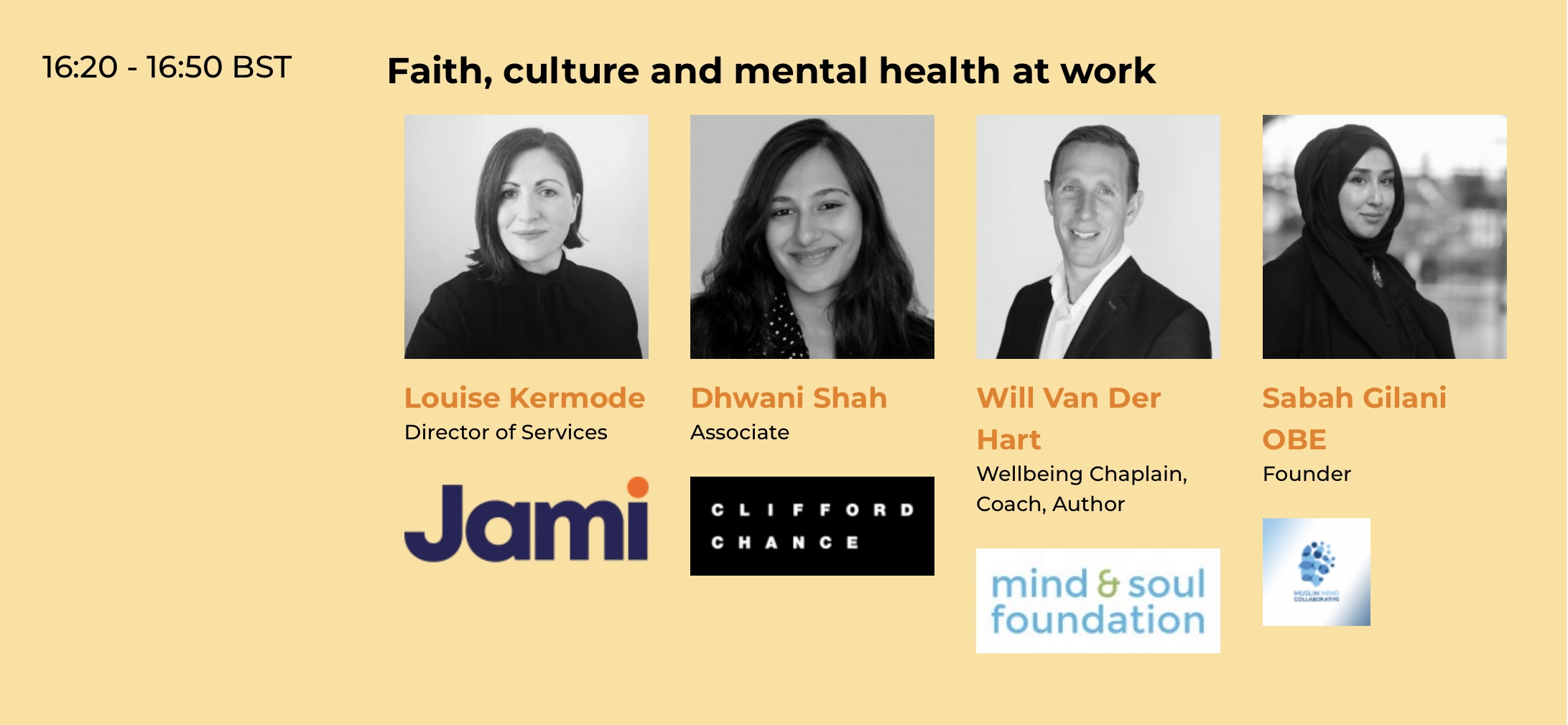The Muslim Mind Collaborative (MMC) delivered a powerful session shedding light on the unique mental health challenges faced by Muslim communities in the UK. The presentation provided insights into the barriers Muslims face in accessing mental health support, highlighted the role of faith in fostering resilience, and discussed how workplaces can become more inclusive for employees with faith-based practices.
The Hidden Survivors Report reveals a silent mental health crisis among British Muslims. A staggering 4 in 5 young Muslims reported struggling with mental health issues, and 64% disclosed experiencing suicidal thoughts. Strikingly, many young Muslims prefer to seek support from friends rather than formal mental health services, highlighting a significant trust gap. Over 90% of those who accessed services emphasised the need for faith-sensitive and culturally appropriate care.
The broader socio-economic context paints a challenging picture:
- Half of Muslim households in the UK live in poverty compared to 18% of the general population.
- Muslims experience poorer outcomes in health, employment, and housing.
- Islamophobia and structural barriers exacerbate these inequalities, with 70% of Muslims reporting religion-based prejudice.
Faith as a Source of Resilience
Islamic belief and practice offer a source of hope, comfort, and resilience for many Muslims. Practices such as prayer, reflection, and reliance on God (Tawakkul) help individuals navigate mental health challenges. Positive religious coping strategies, like self-reflection and social support, have been shown to reduce depression and promote mental well-being. For Muslim clients, integrating faith into therapeutic approaches can be a powerful tool to foster resilience and provide holistic care.
Creating Inclusive Workplaces
Workplace inclusivity extends beyond physical provisions like prayer spaces. It involves creating an environment where employees feel confident in their identities. Employers can take actionable steps, including:
- Embedding religious literacy and cultural competency into workplace policies.
- Offering training to staff on the role of faith in mental health.
- Normalising the use of faith-based tools to address mental health challenges.
Looking Forward: Solutions for Better Mental Health
To address these pressing issues, MMC advocates for:
- Culturally Appropriate Care: Mental health services must prioritise cultural and faith sensitivity to make Muslims feel respected and understood.
- Religious Literacy Training: Programs like Cardiff University’s Understanding Muslim Mental Health course provide invaluable tools for mental health professionals.
- Diverse Workforce: Recruiting and supporting Muslim professionals in mental health services ensures services reflect the communities they serve.
- Dialogue and Collaboration: Initiatives like MMC play a critical role in fostering connections between mainstream mental health providers and Islamic counseling practices.
By embedding these practices, workplaces and mental health providers can create a more inclusive and effective support system for Muslims. MMC continues to lead the way in bridging the gap between mainstream services and the needs of Muslim communities, ensuring that faith is recognised as a vital factor in mental well-being.

